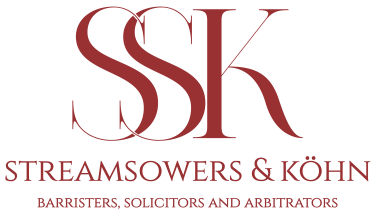
In the modern context of capital raising, Crowdfunding is a relatively novel method for funding for-profit ventures/projects which allows individual founders/promoters to request funding from many individuals in return for future products, a share in profits or equity in the venture. In Nigeria, until the referenced exposure draft, crowdfunding was prohibited by the SEC, such that entities regulated by the SEC and other participants in Nigeria’s formal capital markets were proscribed from crowdfunding. However, it has been a common method of financing for several companies in agriculture1and events promotion, to mention a few use cases.
Application of the Rules
The Rules apply to four (4) main categories of persons namely the Issuer, the Crowdfunding Portal, the Intermediary and the Investor. The Issueris the company that will be seeking to raise the funds by issuing shares, plain vanilla bonds, debentures or simple contracts (collectively referred to as ‘Investment Instruments’). The Portalis the entity that owns/operates the platform on which the investment instrument will be offered and sold. The Intermediaryis the entity that will facilitatethetransactions involving the offer or sale of securities or investments. Whereas the Investoris self-descriptive.
Prohibited entities
Public listed companies and their subsidiaries, complex structures (which are entities whose ownership is not immediately ascertainable), companies without a specific business plan or a blind pool2, companies that intend to use the funds raised to provide loans or invest in other entitiesspecifies by the SEC are prohibited from Crowdfunding.
Eligibility to crowdfund under the Rules
The Rules hinge eligibility to raise capital via this means on the requirements that the Issuer must fall within the MSME classification done by the Small and Medium Enterprise Development Agency of Nigeria (SMEDAN)3; must have been in operation for at least 2 years prior to the capital raising effort; be incorporated in Nigeria; and be accredited or accepted by the Crowdfunding Portal.
Who is required to register with the SEC?
The Portals and the Intermediaries. The SEC has approached regulation by requiring the portals and intermediates to be registered with the SEC whereas Issuers are exempted from the registration required under the Investment and Securities Act (‘ISA’) . ThePortal is required to have a minimum paid up share capital of N 100,000,000(One Hundred Million Naira) among other things in order for it to register and be able to offer its services.The Crowdfunding Portalhas been defined by Rules to include websites, portals, applications etc. The Rules also take into cognisance portals that are not located in or operated from Nigeria. It requires registration by persons ‘operating, providing or maintaining’ a crowdfunding portal in Nigeria. Breaking this down, the portal must be registered if it is:
- Operated, provided or maintained in Nigeria.
- Located outside Nigeria but actively targets Nigerian investors and
- Physically located in Nigeria even if any of its component parts are located outside Nigeria.
The foregoing raises some points which ought to be clarified by the SEC. First is the question of “actively targeting Nigerian investors”. Given the way crowdfunding portals work, the platform is established and persons looking to raise funds register accountson the platform and by themselves push the information out about their project or cause. If such an entity sets up such an account and attempts to drive traffic to its project by targeting Nigerian investors, could it be said in such a case that the portal is actively targeting Nigerian investors?
Secondly, what are the ramifications of being “physically located in Nigeria”? Do the Rules contemplate office locations with local headcount or are we looking at the location of equipment such as data centers/servers etc.?
The Rules further provide that only entities registered with the Commission as an Exchange, Dealer, Broker, Broker/Dealer or Alternative Trading Facility as prescribed under the ISA as Crowdfunding Intermediaries. Subject to certain exceptions, only Crowdfunding Intermediaries can register, operate and maintain a Crowdfunding Portal.
What kind of investment instruments can be offered?
The notion of the Rules, as is expected, is to regulate crowdfunding for the purpose of investment in businesses and not charity. This notion is confirmed in the definition of the investment instruments which can be issued on the portal. These include shares, plain vanilla bonds, debentures and simple contracts and other instruments which the SEC may prescribe from time to time.
Prior to the Rules, the underlying instrument in a crowdfunding exercise was usually a simple contract between the Investor and the Company raising funds. Interests in the ventures were either unitized with unit values agreed on or indicated via percentages in the proceeds of the Venture. The liquidity of these interests were limited because the contracts were usually non-transferrable. The absence of this feature to a large extent, reduced the use cases for these instruments. The Rules are expected to fix this limitation, as the investment instruments contemplated are of negotiable character. This is an advantage.
It is also expected that the simple contract category will cast a wide net over the kind of transactions that may be caught by these Rules. As such, one must be circumspect if one is considering crowdfunding as a capital raising model.
How much can be raisedand invested?
The Rules in tandem with the SMEDAN classification of MSMEs places a cap on the amounts that can be raised via Crowdfunding and also places a restriction on how much can be invested by retail investors. In this vein, a micro enterprise can raise not more than 50 Million Naira, a small enterprise not more than 70 Million Naira and a medium enterprise not more than a 100 Million Naira. Whereas a retail investor cannot investor an aggregate of more than 10% of its annual income in a 12-month period.
It is imperative to note that the foregoing thresholds do not apply to Digital Commodities Investment Platforms (DCIPs). These are platforms that connect investors to agricultural or commodities projects for the purpose of sponsoring such projects in exchange for return. However, they are required to host their investment projects on a Crowdfunding Platform. They may provide Crowdfunding Portal Services subject to the Rules.
Minimum Threshold and Time Limits for an Offering
The Rules peg the minimum threshold for anoffer at 50% of the target amount. The minimum threshold is the percentage of the target amount that must be raised in a funding round before the issuer is eligible for disbursement.With respect to time limits for an offering, a funding round shall not be open in excess of 60 days. If the minimum threshold is not met within 60 days, the offer shall be withdrawn and may be reissued not earlier than 90 days after the withdrawal.
Conclusion
The Rules have a number of other provisions which are not covered inthis primer, such as the prerequisites for an Issuer to crowdfund; the need for DCIPs that existed prior to the Rules to obtain letters of ‘No Objection’ from the SEC in order to continue operations; the abilities of an Investor to withdraw from an offer;lock-up period provisions and the exemption of certain technology firms from the application of the Rules, among others.
The Rules are a welcome development and they provide more comfortable options for companies seeking capital, more so for investors. It is expected however that the SEC will have to provide some clarification on some of the identified grey areas, preferably before the Rules come into effect Businesses are encouraged to prepare themselves to explore the option of Crowdfunding when the Rules come into effect.
Disclaimer
SSKÖHN NOTES is aresource of the law firm STREAMSOWERS & KÖHNdeployed for general information anddoes not constitute legal advice neither is it a substitute for obtaining legal advice from a legal practitioner.

